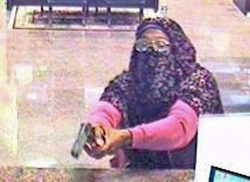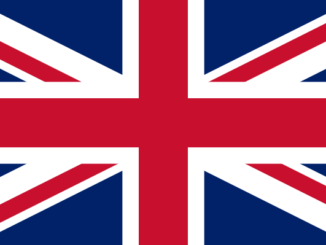 Almost two years after his column sparked a firestorm, UK Prime Minister Boris Johnson is still being accused of bigotry for having opined that face-veiled Muslim women bear a resemblance to letter boxes and bank robbers.
Almost two years after his column sparked a firestorm, UK Prime Minister Boris Johnson is still being accused of bigotry for having opined that face-veiled Muslim women bear a resemblance to letter boxes and bank robbers.
While the former comparison may be amusing to those familiar with British letter boxes, the latter touches on a more serious problem in the West. Johnson’s piece never mentions it — and his critics certainly do not — but there is a good reason to associate burqas and niqabs with bank robbers: many criminals, including bank robbers, have discovered the utility of concealing themselves behind Islamic face veils.
Case in point: In June, a woman was handed two and a half years in prison for orchestrating the theft of a laser hair-removal machine worth up to £50,000 from a London beauty salon in 2018. “You disguised yourself by wearing Islamic dress which covered your face,” the judge noted, “and I’m quite sure the reason you were dressed that way to go into the salon was to disguise your identity.”
* * *
Other recent examples from Britain and the U.S.:
January 2019: Police were hunting for two men responsible for six armed robberies of businesses in and around Philadelphia. One of the suspects wore face-covering Muslim attire.
January 2019: A man in “a burqa and with a scarf across his face” produced a knife and stole a £7,000 Rolex from a store in Leicester, England. He was apprehended within minutes and later sentenced to four years.
March 2019: An armed man wearing a flowery niqab, maroon dress, and glasses held up a bank in a Houston suburb. The “Springtime Suspect” is pictured above.
April 2019: Two men admitted involvement in a spree of four Philadelphia-area bank heists “carried out by an armed robber disguised in a burqa.” Check out the photos on the wanted poster.
August 2019: An armed woman targeted banks in Chicago and Skokie, Illinois, on the same day while sporting Muslim-style headscarves and face coverings, getting away with more than $8,000. An arrest was made a week later.
August 2019: A man robbed a bank in Chesterfield Township, Michigan, wearing an outfit similar to a niqab and robe. He was recently sentenced to one year in prison and ordered to repay $3,000.
October 2019: Police were searching for an individual in a niqab and gown wanted for a string of purse thefts in the Philadelphia suburbs.
February 2020: “A man dressed in a burqa covering most of his face” ran off with $800,000 worth of items from a high-end jewelry store in Manhattan. Police arrested a married couple in March, having found the stolen goods at their home.
Dozens of additional cases stretching back more than a decade are summarized here.
* * *
A woman who wore a niqab during a botched 2013 bank robbery in California said it best: “I don’t think it was fair of me to exploit that, but what better costume?”
Some European countries have outlawed face-covering garments in public due to safety and other concerns, but Johnson does not support such a move in the UK, arguing that “a total ban is not the answer.” As for the U.S., a blanket prohibition would likely run into trouble in the courts.
There are, however, seemingly sensible options short of a total ban. Because a niqab-clad criminal cannot rob an establishment that he or she cannot enter, a good start would be for banks, jewelry stores, and other security-conscious businesses to bar any kind of face-concealing attire on their premises and vigorously enforce the policy at the door — at least once coronavirus mask mandates are rescinded.
Maybe, just maybe, people will be less inclined to associate burqas and niqabs with bank robbers if we make it harder for criminals in burqas and niqabs to rob banks.


